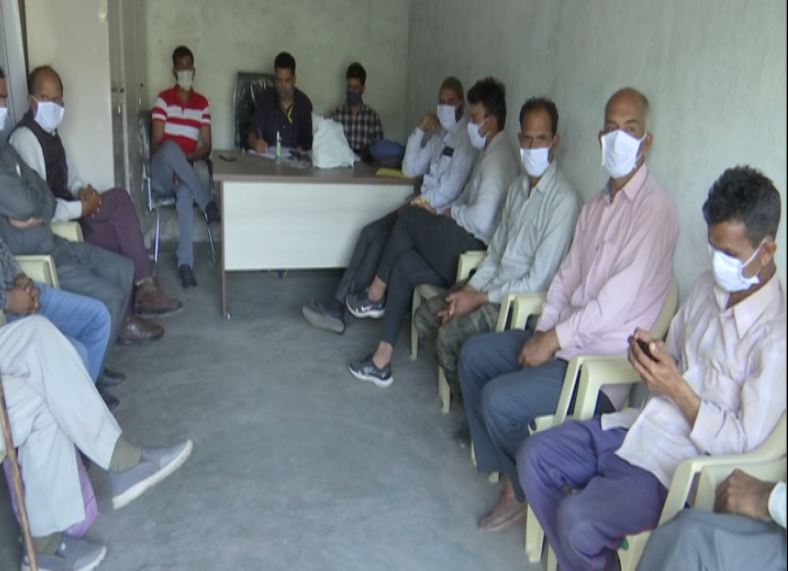MGNREGA gives work to people below poverty line in J-K's Dhangri
Apr 10, 2021

Rajouri (Jammu and Kashmir) [India], April 10 : As the three-tier Panchayat system gave powers to panchayat members to provide work under Mahatma Gandhi National Rural Employment Guarantee Act (MGNREGA), many people below the poverty line in Dhangri block of Rajouri has been provided jobs under MGNREGA.
The scheme has given new hopes for people living in far-flung hilly areas of Dhangri block with no road or water connectivity.
Ram Krishan, Sarpanch, Potha Panchayat said, "I am very happy about the pace at which work is happening. MNREGA and Pradhan Mantri Awas Yojana (PMAY) are going on well. Many departments are working on this. We are at work to give water connectivity to the whole of this panchayat."
A local said, "The scheme is very good. Many people lost their jobs as machines took over their work. Panchayat Development work will help them buy bread and butter."
"Development work is going on very well. Before 2 years there was nothing of this sort," he further said.
"Before they gave additional powers to panchayat my life was in darkness. I had no work. Officers are in contact with me constantly and they give me work," said another local.
Abrar Hussain Mirza, Block Development Officer Dhangri said, "More than 1300 houses have been approved under PMAY in this block. Construction of 312 houses have been completed and construction of more than 1000 is ongoing"
Pointing to the house under construction behind him, he said, "This is the development work going on here. Be it PMAY, MNREGA or any other schemes planning is done from the grass root. If they lose some work one year they get compensated next year."
Amir Sohal a Panchayat Secretary in Dhangri Block said, "There have been rapid changes due to Panchayati Raj act. Panchayat is fully functional and empowered. They have full power to formulate their plans. Block Development Office is also functional, DDC elections just completed, they are also fully functional."
"MNREGA scheme helped people during the COVID-19 crisis. In far-flung areas where there is no road connectivity or water resources, people do unskilled labour and change the economic structure of their villages," he added.






















